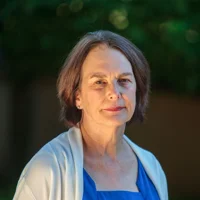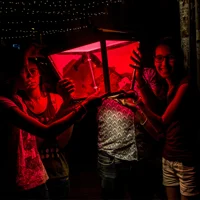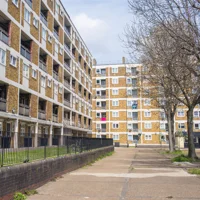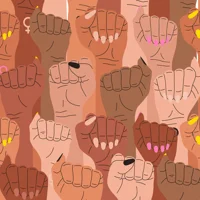Research projects

We are distinguished by a commitment to advancing key debates in the discipline of Sociology while also pursuing interdisciplinary research, to the highest standards of excellence.
A selection of funded research projects is listed below.

British Voices: New Methods for Understanding the Impact of Social Change on Individual Lives
Dr Carrie Frieseis a Co-Lead on an ESRC Transforming Data Collections and Infrastructure for Social Science pilot study led by Professor Jane Elliot (University of Exeter). This project is entitled "British Voices: New Methods for Understanding the Impact of Social Change on Individual Lives." The other Co-Leads include Dr Travis Coan (University of Exeter), Professor Mike Savage(LSE) and Gayle Munro (NatCen). George Byrne (LSE) and Ranadheer Malla (University of Exeter) are research officers. The long-term vision of the British Voices team is to augment existing data infrastructure by developing a mixed-methods, repeated cross-sectional data resource that includes detailed qualitative data with a large and representative sample of the British population. Their aim here is to conduct the rigorous scoping work necessary to inform the development of such a transformative data infrastructure.

Understanding the effects of health and caregiving dynamics on credit usage and financial distress
In this project, supported through the Understanding Society Fellowship, Dr Ursula Henzexamines the social costs of ill health and caregiving – a vital exploration in our context of pronounced inequalities, a cost of living crisis, and increased care requirements. Drawing on a longitudinal analysis of data between 2009-2021 from Understanding Societyand merging this with significant credit data, Dr Henz analyses relationships between critical life events – the onset of ill health and becoming a caregiver – on the one hand, and credit balances and the probability of entering credit arrears on the other hand. The research also investigates differences in these effects among age, gender, income and ethnic groups due to variations in their resources to deal with sudden changes. These findings can aid regulators in developing policies to assist customers in managing problem debt and provide valuable insights for charities offering advice and support to individuals facing problem debt during critical life events.

Owners and Occupiers: The Politics of Housing Tenure
This project, supported by the Leverhulme Research Fellowship, advances Dr David Madden’s research on a foundational yet often overlooked concept in housing research: tenure. In contrast to previous understandings of tenure as a set of census categories or dwelling types, such as owner-occupation, private renting, or public renting, in this project, Dr Madden develops a new sociological approach that sees tenure as the complex, contested relationships between the owners and occupiers of housing. By reconceptualising tenure, the book will seek to provide us with a better understanding of the contemporary housing crisis, and will argue that politicising and transforming tenure is the key to overhauling today’s unequal housing systems.

Commemorative Climates
With the support of the Philip Leverhulme Prize, Dr Rebecca Elliottwill be launching a new project tentatively called "Commemorative Climates," which will be the subject of her second book. The project investigates how heritage conservation institutions are responding to climate change as they confront questions about what to preserve versus what to let go, and how to memorialise what cannot or will not be saved from coastal erosion, rising sea levels, or recurrent flooding. The project will examine how a destabilising climate complicates already fragile and contentious efforts to stabilise a historical narrative or a landscape and to render its artifacts durable. Image credit: Kerry Garratt.

Leverhulme Visiting Professorship Award
Professors Sam Friedmanand Mike Savagehave succeeded in winning a prestigious Leverhulme Visiting Professorship award to host Annette Lareau, from the University of Pennsylvania, in LSE Sociology from January to June 2024. Annette is one of the world’s leading qualitative researchers, renowned for her study of the impact of class and parenting practices. More recently she has been conducting research on the family lives and strategies of wealthy American families, an interest which will fit closely with the social inequalities cluster in the department. During her stay, Annette will be assisting with teaching qualitative methods, in working with Mike (and Maria-Luisa Mendez, Santiago, Chile) in editing an Oxford Handbook on the Sociology of Global Elites, and will be giving various talks.

Social Lighting and Urban Design in Southeast Asia: Changing Professional Practices
This project, led by Dr Don Slaterin collaboration with Dr Elettra Bordonaro (Senior Visiting Fellow, LSE), Dr Joanne Entwistle (KCL), and local project partner KMUTT, seeks to foster "social lighting" and socially-driven urban design in Southeast Asia. It will host a capacity-building workshop in the Mahakan Fort Park neighbourhood of Bangkok, inviting lighting professionals to experience active social research, engage with stakeholders, and develop lighting designs informed by social research findings. This project is part of the wider work conducted by the Configuring Light research group. Find out more.

Independent Panel of Inquiry into the Violence in Leicester, August-September 2022
In August-September 2022, violence erupted between groups of Hindus and Muslims from South Asia and rocked Leicester, a city that previously had a long, proud history of inter-communal conviviality and joint struggles against racism. The research aims to understand why the violence erupted by examining the broader trend of growing antagonism within some South Asian communities in Leicester and the UK. The project includes depth interviews, including with witnesses to the violence, focus groups, observation and social media research, surveys, and engagement with community, youth and women’s groups, law enforcement, and other statutory authorities. Funded by the Open Society Foundations, the project is jointly led by Dr Subir Sinha (SOAS) and Professor Chetan Bhatt (LSE) in collaboration with The Monitoring Group, London.

Taxing Ghosts: Closing Residency Loopholes to Fund Post-Pandemic Recovery Efforts
Taxing Ghosts contributes to the international tax reform agenda by illuminating the systemic problem of how people and corporations game, or "ghost", residence to avoid tax. Dr Kristin Sunakis the Principal Investigator on the project, and together with teams at McGill University, University of Cape Town, and University of the Western Cape (linked through the TAP RRR), is examining the national and international factors that facilitate tax ghosting by wealthy individuals and corporations to reveal the disparate economic threats created by such ghosting, analyze why states have failed to recognize the threats to date, and propose novel yet feasible policy solutions based on our findings. The project was awarded €540,000 by the Trans-Atlantic Partnership. Dr Surak’s portion of the grant, €315,000, comes from the ESRC to fund her work on digital nomads and tax avoidance.

Configuring Light: Staging the Social
All social life happens in some degree of light and darkness. Light structures the kinds of social practices and interactions we enter into at home or on the street, how safe we feel and how well we can navigate through social spaces. Today, fuelled by new technologies and urgent social and environmental concerns, light is increasingly taking centre stage in many urban discussions, especially around economic and environmental costs, safety and well-being, aesthetics and city branding. And yet, despite this centrality, there is very little knowledge and research on what lighting means to people and how they incorporate it into their daily lives and practices. And even less on how lighting designers can build social knowledges to inform their professional practices.
Configuring Light is a team of sociologists and lighting professionals who explore the role light plays in social life, and how leading edge social research can produce better lighting. One of the group’s notable projects is ENLIGHTENme, a four-year Horizon 2020 programme (2021-2025). The project is led by Dr Don Slateras the Principal Investigator, in collaboration with Dr Elettra Bordonaro (Senior Visiting Fellow, LSE) and Dr Joanne Entwistle (KCL), in partnership with a verity of local collaborators. Find out more.

Living at Regenerated Neighbourhoods in London
This project examines the housing and neighbourhood experiences of recent and long-term residents at neighbourhoods which have gone through a process of regeneration. One of the main policy goals for regeneration via the demolition and rebuilding of social housing estates, has been the creation of mixed-tenure neighbourhoods comprising newly built upmarket flats for sale alongside rebuilt social rental properties. However, there is a dearth of research on the longer-term aftermaths of estate regeneration. In this British Academy funded project, Professor Paul Watt (Visiting Professor, Sociology, LSE) addresses this important research and policy gap by examining two regenerated social housing estates in London. What kind of mixed-tenure neighbourhoods are being created by estate regeneration and how do they fit into London's wider socio-economic development?

Human Rights, Human Remains
Human Rights, Human Remainsis a research project led by Dr Claire Moon.
The project has resulted in a number of publications to date with more planned for the future, including two books and one special issue of the journal Mortality. The first book, Extraordinary Deathwork, concerns the particular and ‘extraordinary’ forms of death labour that emerged in response to mass violent death during Mexico’s so-called ‘war on drugs’. The second, entitled Human Rights, Human Remains, concentrates on the broader history, politics, practices, and ethics of forensic exhumations of mass graves. It looks at the dead body as the object of humanitarian concern and action. It asks whether, as a result of historical and contemporary humanitarian activity around the dead, we can now argue that the dead have human rights.
In support of this research, Claire undertook professional training in forensic anthropology (grave exhumation and human skeletal identification) and death management, focussing on human rights investigations, mass disasters, and the humanitarian management of the dead.
You can watch a short film hereabout the research, entitled ‘Do the dead have human rights?’
Human Rights, Human Remains has been generously funded at various stages of its evolution by the Wellcome Trust, the Leverhulme Trust and LSE. The research has informed the development of new international protocols and national and UN reports on mass grave location, protection and exhumation. In the process of conducting the research, Claire served on the advisory board of a citizen science collective of families of the disappeared in Mexico and continues to collaborate with family organisations searching for their missing relatives.

ENLIGHTENme
Dr Don Slateris part of an interdisciplinary consortium of 22 partners performing in-depth studies in three European cities to develop innovative, evidence-based policies to improve citizens’ quality of life addressing indoor and outdoor lighting.
While EU cities have worked on improving urban lighting services, this has mostly focussed on efficiency, reducing costs and lowering emissions. Yet, it has failed to consider the effect urban lighting may have on citizens’ health and wellbeing.
ENLIGHTENme brings together experts from different scientific fields and sectors such as urban development and health research, ENLIGHTENme will collect evidence about the impact outdoor and indoor lighting has on human health. ENLIGHTENme sets out to develop and test innovative solutions and policies that will offset health inequalities in European cities.
Find out more about ENLIGHTENme.

Eastern European Studies at a Time of War
Like other societal challenges, such as climate change or COVID-19, the war in Ukraine is influenced by expert knowledge and dynamics within expert communities. It is a task of reflexive social science to comprehend the nature of this influence. Led by Professor Monika Krause, this project examines expertise regarding Eastern Europe in Germany and the UK during a contentious period in the history of their field. The months following the Russian attack have sparked debates among scholars, which raise vital questions about the relationship between expertise and political processes and disputes.
The project's goals include exploring how experts navigate political dilemmas and conflicts within their fields, developing theory by conceptualizing various institutional connections between academia and politics through field theory, and investigating how regional knowledge is shaped by imperial and other international agendas, domestic political interests, dynamics within expert communities, and idiosyncratic ties between countries.

Changing Elites: How Social and Institutional Change Has Altered the Processes of Elite Formation over Time?
Elites today differ significantly from those in the past, but what exactly has changed and why? Answering these questions has proven challenging due to the limited availability of longitudinal data on elites. Funded by the European Research Council, the Changing Elites project seeks to address these questions by creating an unprecedented catalogue of the elite, unrivalled in both empirical and temporal scope. The project aims to explore the composition of elites, including the emergence of female elites, the extent of cultural cohesion among elite groups, and the intersection between economic and social elites over time. Furthermore, it will examine how policy changes, such as alterations in entrance exams for elite universities or adjustments to top tax rates, may either restrict or facilitate the processes of elite reproduction within these institutions.
Principal Investigator: Professor Aaron Reeves (University of Oxford); Co-Investigator: Professor Sam Friedman.
You can read about Sam Friedman's recent research project on the 'class pay gap' within the UK's elite and professional occupations here: The Class Ceiling.















